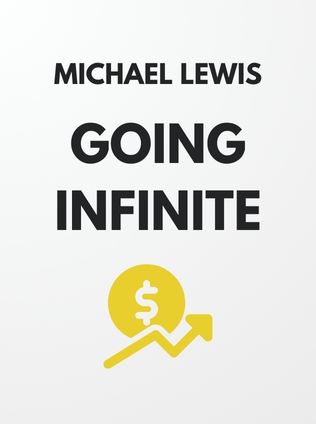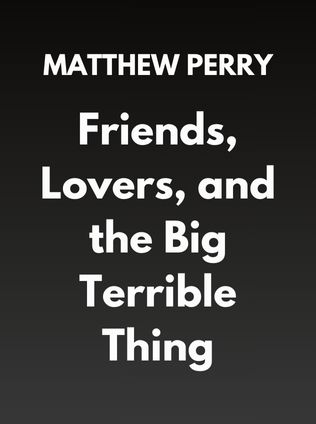
Going Infinite
The Rise and Fall of a New Tycoon
By Michael Lewis
Published 10/2023
About the Author
Michael Lewis, a celebrated American author and financial journalist, has made a significant impact on the literary and financial worlds with his insightful and compelling narratives. Born in New Orleans, Louisiana, in 1960, Lewis graduated from Princeton University and later earned a master’s degree in Economics from the London School of Economics. His career took a significant turn when he joined Salomon Brothers, a leading investment bank, as a bond salesman. This experience provided the foundation for his first bestseller, Liar’s Poker, a candid look at the excesses and culture of Wall Street in the 1980s.
Lewis’s ability to demystify complex financial concepts and present them in an engaging and accessible manner has earned him a broad readership. His other notable works, such as Moneyball, The Big Short, and Flash Boys, have not only topped bestseller lists but have also been adapted into critically acclaimed films. These books have cemented his reputation as a master storyteller who can weave intricate tales of financial markets, economic principles, and the individuals who drive them.
In Going Infinite, Lewis applies his signature storytelling style to the story of Sam Bankman-Fried, a figure who rose to prominence in the cryptocurrency world before experiencing a dramatic fall from grace. Through meticulous research, including hundreds of interviews and extensive access to Bankman-Fried himself, Lewis provides a nuanced portrait of a man whose life and career encapsulate the dizzying highs and devastating lows of the crypto era.
Main Idea
Going Infinite explores the extraordinary rise and catastrophic collapse of Sam Bankman-Fried, the founder of the cryptocurrency exchange FTX. The book delves into the intricacies of Bankman-Fried's journey from a socially awkward teenager to a billionaire entrepreneur, driven by a philosophy of effective altruism. Lewis examines how this philosophy influenced Bankman-Fried's decisions, both in building his empire and in navigating the ethical challenges that arose along the way.
The book also scrutinizes the broader implications of Bankman-Fried’s actions within the context of the volatile cryptocurrency industry. Was he a misguided idealist whose adherence to a lofty philosophy blinded him to the practical realities of business? Or was he a calculated fraudster who used his ideals as a smokescreen for unethical practices? Through these questions, Lewis prompts readers to consider the fine line between innovation and deception, particularly in an industry as nascent and unregulated as cryptocurrency.
Table of Contents
- Introduction: The Rise and Fall of a Crypto Empire
- The Making of Sam Bankman-Fried: From Outcast to Wall Street Prodigy
- Effective Altruism: A Philosophy in Practice
- The Birth of Alameda Research and FTX
- The Empire Expands: Successes and Struggles
- The Collapse: A Catastrophic Downfall
- The Aftermath: Seeking Answers and Justice
- Conclusion: Reflections on Innovation and Integrity
The Making of Sam Bankman-Fried: From Outcast to Wall Street Prodigy
Sam Bankman-Fried’s journey is one marked by an intense focus on intellectual pursuits and a profound sense of social isolation. From a young age, Bankman-Fried exhibited behaviors that set him apart from his peers. Described as a "social outcast," he struggled to understand the social norms that govern interpersonal interactions. This disconnect manifested in behaviors that were often perceived as odd or inappropriate by those around him. For instance, Bankman-Fried admitted to Lewis that he never understood the point of facial expressions, stating that he didn’t see why he was supposed to smile when listening to others speak.
These social challenges did not hinder Bankman-Fried’s intellectual growth, however. He excelled academically, eventually attending MIT, where he was exposed to a range of ideas that would shape his future endeavors. It was here that he encountered the principles of effective altruism, a philosophical movement that advocates using evidence and reason to maximize the amount of good one can do in the world. This philosophy resonated deeply with Bankman-Fried, influencing his decision to pursue a career that would allow him to earn significant amounts of money, which he could then donate to high-impact causes.
Upon graduating from MIT, Bankman-Fried joined Jane Street Capital, a quantitative trading firm known for its rigorous approach to market analysis and trading strategies. At Jane Street, he quickly made a name for himself as a prodigious trader, excelling in complex probability games that tested his mathematical intuition and decision-making under pressure. His success at Jane Street was a testament to his analytical abilities and his capacity to thrive in high-stakes environments. Yet, despite his success, Bankman-Fried felt a growing dissatisfaction with his work. He began to question whether his role at Jane Street was truly aligned with his goal of maximizing his impact on the world.
Sign up for FREE and get access to 1,400+ books summaries.
You May Also Like
Rich Dad Poor Dad
What the Rich Teach Their Kids About Money - That the Poor and Middle Class Do Not!
By Robert T. KiyosakiFreakonomics
A Rogue Economist Explores the Hidden Side of Everything
By Steven D. Levitt and Stephen J. DubnerI Am Malala
The Story of the Girl Who Stood Up for Education and Was Shot by the Taliban
By Malala Yousafzai



















